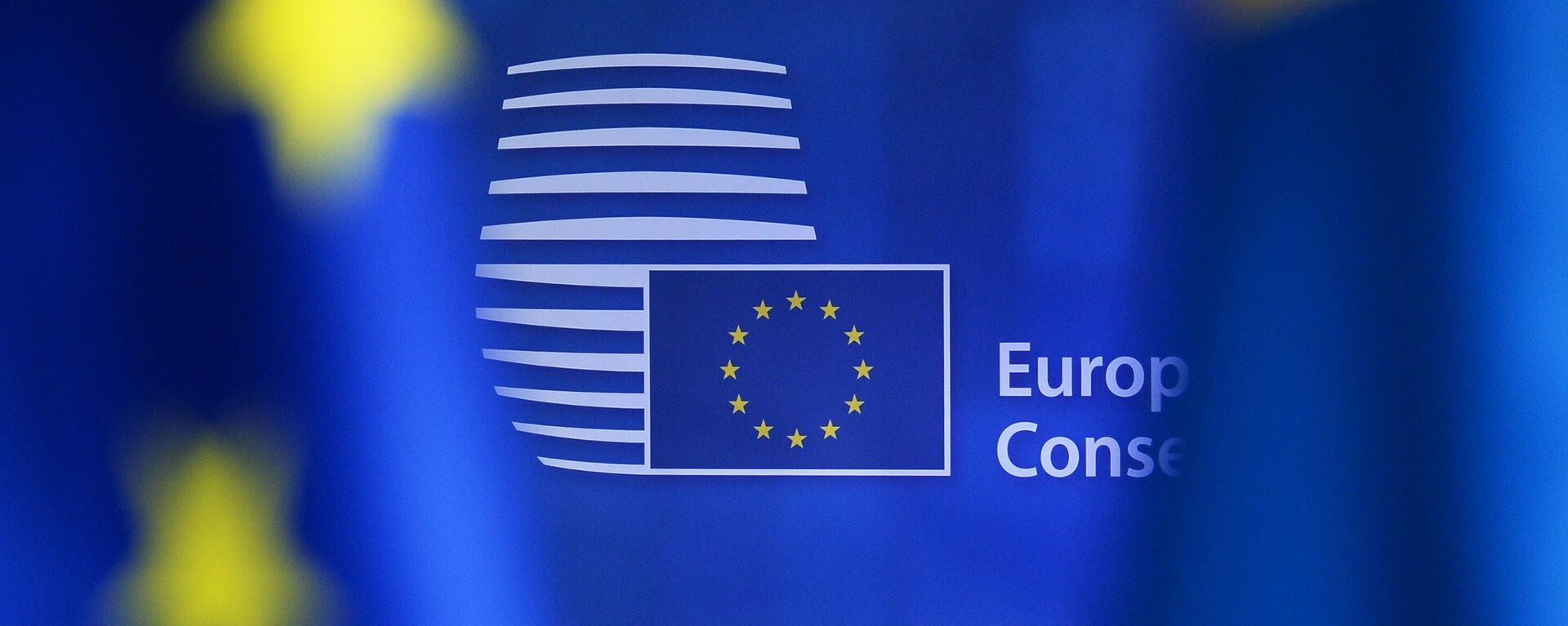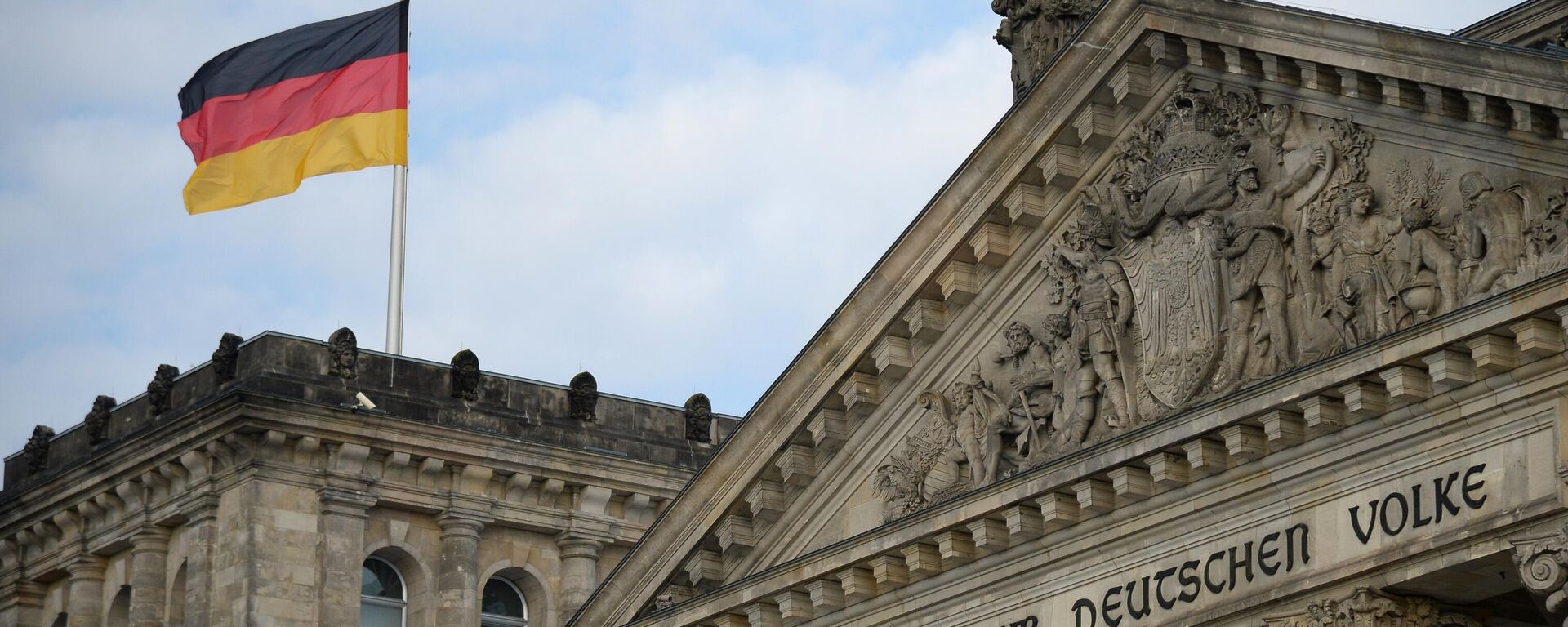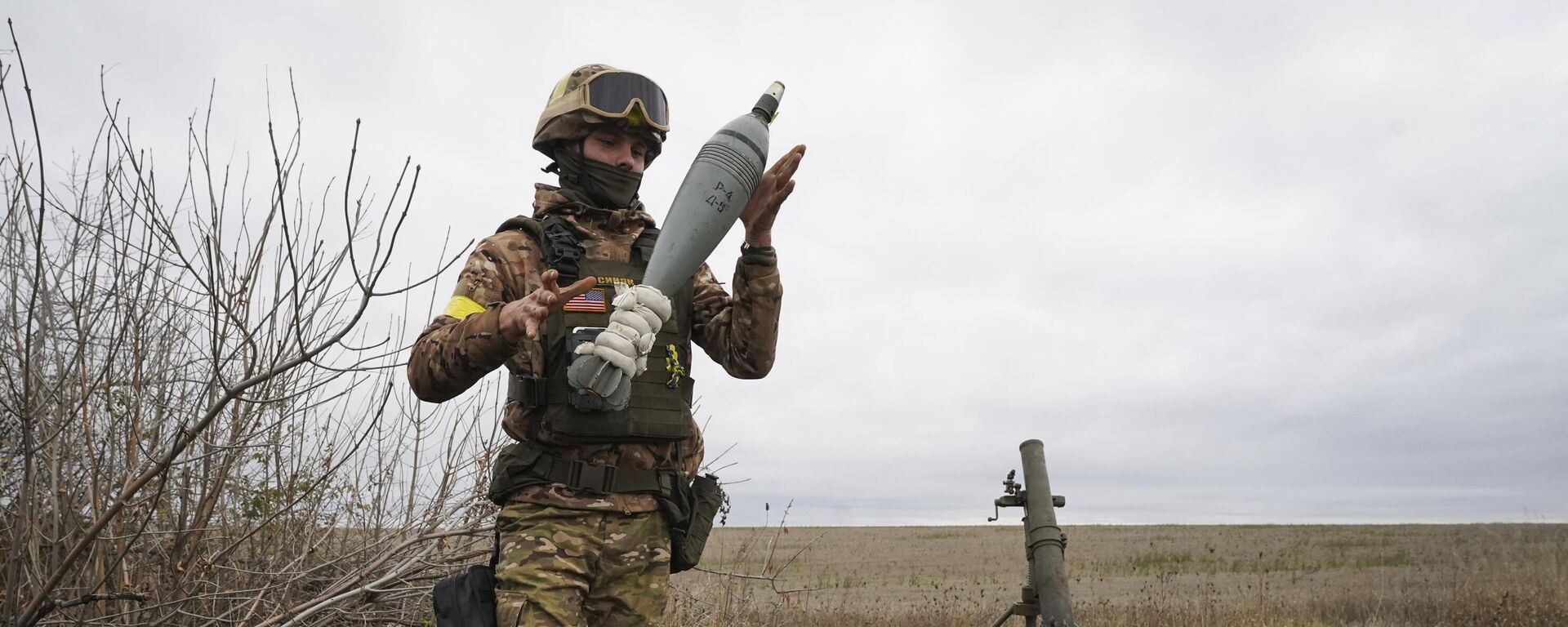https://sputnikglobe.com/20230830/eu-overplayed-its-hand-in-ukraines-support--analyst--1112992245.html
EU ‘Overplayed Its Hand’ in Ukraine’s Support – Analyst
EU ‘Overplayed Its Hand’ in Ukraine’s Support – Analyst
Sputnik International
EU leaders should bear in mind that they should be accountable to those who are electing them, not to Kiev, when it comes to the bloc’s budget, analyst Adriel Kasonta told Sputnik.
2023-08-30T15:33+0000
2023-08-30T15:33+0000
2023-08-30T15:33+0000
ukraine
germany
european union (eu)
budget
support
crisis
money
analysis
https://cdn1.img.sputnikglobe.com/img/07e7/08/1e/1112991082_0:0:3150:1773_1920x0_80_0_0_2c8dc78b7aeb8df2f2756ec62b2bab44.jpg
On Wednesday, the bloc’s foreign policy chief Josep Borrell announced that EU countries will discuss the continuation of financial support for Ukraine at a meeting in Spain on the 30th and the 31st August.The gathering convenes as EU members remain at odds over the bloc’s €86 billion ($93.2 billion) budget, which includes €20 billion ($21.6 billion) in military assistance for Kiev.According to Adriel Kasonta this situation is challenging because European politicians apparently realize the fact that primarily “they are accountable” to the citizens of their countries, not to Brussels or Kiev..Kasonta said that he was not sure whether the EU is in a position to provide Ukraine with any additional money. The political scientist referred to last month’s “very famous conference related to the private sector support for Ukraine”, which he said clearly showed that governments all across Europe and even in the US perfectly understand that the public support for Kiev “is dwindling.”The problem, however, is that EU members “simply don't have money anymore to support themselves and they don't have money to support Ukraine. That's the bottom line,” Kasonta underlined.According to him, “knowing that [EU] member states are simply out of money, they are not even able to sustain their own citizens, their own people, the question of supporting the country, which is not even a European member state, is out of question.”The analyst suggested that the EU will now try “to somehow cover up their inability to provide Ukraine with additional support by pushing and advocating for the private sector to chip in and support Kiev.”“But everyone who is in the business […] knows that the Ukraine war has been a lost cause from the very beginning. I mean, the United States has achieved what it wanted to achieve. It provided a lot of loans and grants to Ukraine. Ukraine has been privatized. So the goal has been accomplished,” per Kasonta.As far as the EU is concerned, he went on, “the facts are on the ground” that the bloc “made a wrong bet and overplayed their hand.”When asked how the economic crisis in Germany has impacted the state of the EU budget, Kasonta referred to this Western European country as something that “used to be an economic engine of the EU.”The analyst recalled the US’ strategic objective from the very beginning was to prevent a close economic relationship between Russia and Germany, something that he said “points out to the fact of the unresolved question of the Nord Stream pipeline sabotage.”The Nord Stream and Nord Stream 2 gas pipelines - built to deliver gas under the Baltic Sea from Russia to Germany were hit by explosions in September 2022.No official ivestigation results have yet been announced, but a Pulitzer Prize-winning US investigative journalist Seymour Hersh published a report in February 2023 suggesting that the explosions were organized by the United States with Norway's support.
https://sputnikglobe.com/20230829/eu-budget-battle-shows-euroscepticism-and-ukraine-fatigue-rising-1112971757.html
https://sputnikglobe.com/20230721/how-us-funnels-eus-wealth-into-ukraine-proxy-war-1112049838.html
https://sputnikglobe.com/20230824/whats-behind-decline-of-germany-1112852729.html
ukraine
germany
Sputnik International
feedback@sputniknews.com
+74956456601
MIA „Rossiya Segodnya“
2023
Oleg Burunov
https://cdn1.img.sputnikglobe.com/img/07e4/09/0b/1080424846_0:0:2048:2048_100x100_80_0_0_3d7b461f8a98586fa3fe739930816aea.jpg
Oleg Burunov
https://cdn1.img.sputnikglobe.com/img/07e4/09/0b/1080424846_0:0:2048:2048_100x100_80_0_0_3d7b461f8a98586fa3fe739930816aea.jpg
News
en_EN
Sputnik International
feedback@sputniknews.com
+74956456601
MIA „Rossiya Segodnya“
Sputnik International
feedback@sputniknews.com
+74956456601
MIA „Rossiya Segodnya“
Oleg Burunov
https://cdn1.img.sputnikglobe.com/img/07e4/09/0b/1080424846_0:0:2048:2048_100x100_80_0_0_3d7b461f8a98586fa3fe739930816aea.jpg
eu's financial support for ukraine, eu foreign policy chief josep borrell, recession-hit germany, eu's budget, eu members' differences over eu budget
eu's financial support for ukraine, eu foreign policy chief josep borrell, recession-hit germany, eu's budget, eu members' differences over eu budget
EU ‘Overplayed Its Hand’ in Ukraine’s Support – Analyst
''EU leaders need to bear in mind that they should be accountable to those who are electing them, not to Kiev, when it comes to the bloc’s budget'', Adriel Kasonta, foreign affairs analyst and former chairman of the International Affairs Committee at the Bow Group think tank, told Sputnik.
On Wednesday, the bloc’s foreign policy chief Josep Borrell announced that EU countries will discuss the continuation of
financial support for Ukraine at a meeting in Spain on the 30th and the 31st August.
The gathering convenes as EU members remain at odds over the bloc’s €86 billion ($93.2 billion) budget, which includes €20 billion ($21.6 billion) in military assistance for Kiev.

29 August 2023, 18:58 GMT
According to Adriel Kasonta this situation is challenging because European politicians apparently realize the fact that primarily “they are accountable” to the citizens of their countries, not to Brussels or Kiev..
Those politicians “are simply afraid of their own positions because this is the fact that Brussels is demanding something which can't be met by subsequent governments in various capitals all over Europe without making a sacrifice. And the sacrifice is detrimental to their position in power vis a vis their citizens, because first and foremost, they should be accountable to those who are electing them,” the analyst pointed out.
Kasonta said that he was not sure whether the EU is in a position to provide Ukraine with any additional money. The political scientist referred to last month’s “very famous conference related to the private sector support for Ukraine”, which he said clearly showed that governments all across Europe and even in the US perfectly understand that the public support for Kiev “is dwindling.”
“It's going down. It's unsustainable. So that's why they are trying to rejuvenate or somehow, I should put it, encourage private investors and the private sector in order to invest and continue the war support for Ukraine,” the analyst noted.
The problem, however, is that EU members “simply don't have money anymore to support themselves and they don't have money to support Ukraine. That's the bottom line,” Kasonta underlined.
According to him, “knowing that [EU] member states are simply out of money, they are not even able to sustain their own citizens, their own people, the question of supporting the country, which is not even a European member state, is out of question.”
The analyst suggested that the EU will now try “to somehow cover up their inability to provide Ukraine with additional support by pushing and advocating for the private sector to chip in and support Kiev.”
“But everyone who is in the business […] knows that the Ukraine war has been a lost cause from the very beginning. I mean, the United States has achieved what it wanted to achieve. It provided a lot of loans and grants to Ukraine. Ukraine has been privatized. So the goal has been accomplished,” per Kasonta.
As far as the EU is concerned, he went on, “the facts are on the ground” that the bloc “made a wrong bet and overplayed their hand.”
“In my opinion, the European Union will not be any longer on the scene, because as I mentioned, European politicians still are accountable to their citizens and the citizens in every single country all over the world, including in Europe, want to have politicians who look after them, not after the entities that are not directly involved or don't have direct impact on their well-being and economic prosperity. In this case, it is Ukraine,” the political scientist underscored.
When asked how the economic crisis in Germany has impacted
the state of the EU budget, Kasonta referred to this Western European country as something that “used to be an economic engine of the EU.”
“And once we realize that this engine is broken, this points us to the fact that the entire European Union will suffer, and the entire European Union is broken,” he said, adding that it was, in his opinion, “an ultimate punishment of the United States for Europe and specifically Germany wanting to have a closer relationship with Russia.”

24 August 2023, 14:02 GMT
The analyst recalled the US’ strategic objective from the very beginning was to prevent a close economic relationship between
Russia and Germany, something that he said “points out to the fact of the unresolved question of the Nord Stream pipeline sabotage.”
“I don't want to point fingers. I'm not an investigative journalist. I don't know all the facts, but it is quite astonishing that no one is seeking to get answers to one of the greatest commercial sabotages in Western history”, Kasonta stressed.
The Nord Stream and Nord Stream 2 gas pipelines - built to deliver gas under the Baltic Sea from Russia to Germany were hit by explosions in September 2022.
The incident is considered to have been a deliberate attack on Europe's energy infrastructure and remains under investigation by Denmark, Germany and Sweden, as well as separately by Russia, since the European nations have refused to share any of their findings with Moscow.
No official ivestigation results have yet been announced, but a Pulitzer Prize-winning
US investigative journalist Seymour Hersh published a report in February 2023 suggesting that the explosions were organized by the United States with Norway's support.






